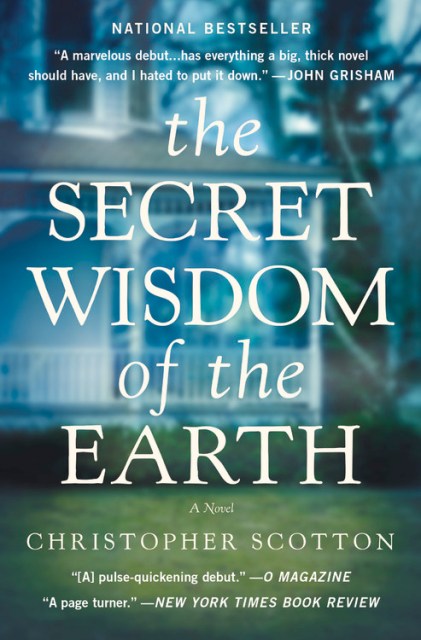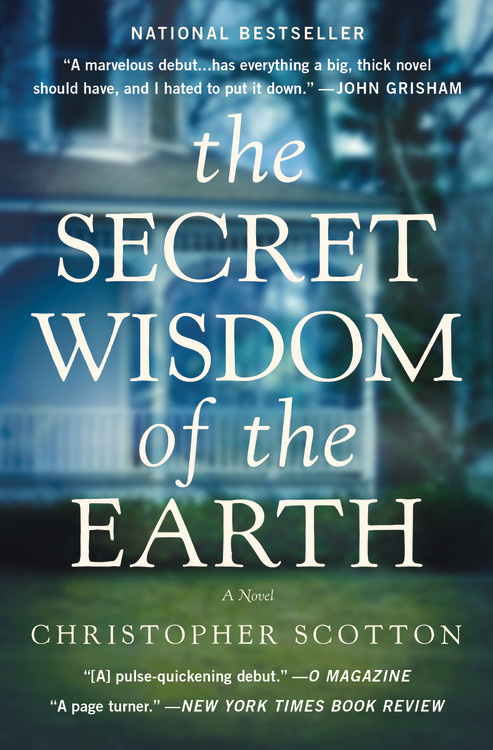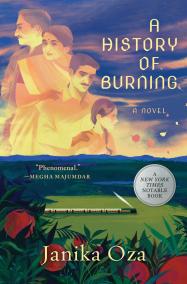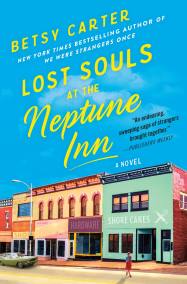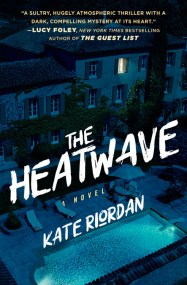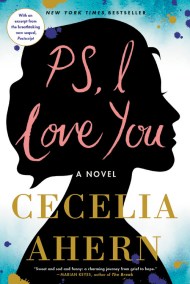By clicking “Accept,” you agree to the use of cookies and similar technologies on your device as set forth in our Cookie Policy and our Privacy Policy. Please note that certain cookies are essential for this website to function properly and do not require user consent to be deployed.
The Secret Wisdom of the Earth
Contributors
Formats and Prices
- On Sale
- Jan 5, 2016
- Page Count
- 496 pages
- Publisher
- Grand Central Publishing
- ISBN-13
- 9781455551910
Price
$24.99Price
$32.99 CADFormat
Format:
- Trade Paperback $24.99 $32.99 CAD
- Audiobook Download (Unabridged)
This item is a preorder. Your payment method will be charged immediately, and the product is expected to ship on or around January 5, 2016. This date is subject to change due to shipping delays beyond our control.
Buy from Other Retailers:
“A marvelous debut…has everything a big, thick novel should have, and I hated to put it down.” — John Grisham
“A page-turner.” — New York Times Book Review
For readers of The Story of Edgar Sawtelle, this is a dramatic and deeply moving novel about an act of violence in a small Appalachian town and the repercussions that will forever change a young man’s view of human cruelty and compassion.
After seeing the death of his younger brother in a terrible home accident, fourteen-year-old Kevin and his grieving mother are sent for the summer to live with Kevin’s grandfather. In this town of Medgar, Kentucky, a peeled-paint coal town deep in Appalachia, Kevin quickly falls in with a half-wild hollow kid named Buzzy Fink who schools him in the mysteries and magnificence of the woods.
The town is beset by a massive mountaintop removal operation that is blowing up the hills and back filling the hollows. Kevin’s grandfather and others in town attempt to rally the citizens against the “company” and its powerful owner to stop the plunder of their mountain heritage. But when Buzzy witnesses a brutal hate crime, a sequence is set in play that will test Buzzy and Kevin to their absolute limits in an epic struggle for survival in the Kentucky mountains.
“A page-turner.” — New York Times Book Review
For readers of The Story of Edgar Sawtelle, this is a dramatic and deeply moving novel about an act of violence in a small Appalachian town and the repercussions that will forever change a young man’s view of human cruelty and compassion.
After seeing the death of his younger brother in a terrible home accident, fourteen-year-old Kevin and his grieving mother are sent for the summer to live with Kevin’s grandfather. In this town of Medgar, Kentucky, a peeled-paint coal town deep in Appalachia, Kevin quickly falls in with a half-wild hollow kid named Buzzy Fink who schools him in the mysteries and magnificence of the woods.
The town is beset by a massive mountaintop removal operation that is blowing up the hills and back filling the hollows. Kevin’s grandfather and others in town attempt to rally the citizens against the “company” and its powerful owner to stop the plunder of their mountain heritage. But when Buzzy witnesses a brutal hate crime, a sequence is set in play that will test Buzzy and Kevin to their absolute limits in an epic struggle for survival in the Kentucky mountains.
Genre:
-
"A page turner...What [Scotton] should be congratulated on is his willingness to tell a new story in an old neighborhood, to draw characters who are thoroughly human, and to create a story that leads to terror and redemption, love and survival."The New York Times Book Review
-
"THE SECRET WISDOM OF THE EARTH is a marvelous debut...The setting, in the coal country of Appalachia, is rich in history and lore and tragedy. A young teenager comes of age under the wise counsel of his grandfather. An ugly murder haunts a small town. The story has everything a big, thick novel should have, and I hated to put it down."John Grisham
-
"How marvelous to start the year of reading with Christopher Scotton's big-hearted THE SECRET WISDOM OF THE EARTH...In the world created by Scotton, Appalachia is more than verdant or hardscrabble... Scotton writes with deep understanding about how the mines eventually got played out and the impact of mountaintop removal... Evil may defy understanding, but in that inquiry into evil, this lovely novel brings readers closer."The Chicago Tribune
-
"[A] pulse-quickening debut...Scotton tempers his Gothic tale with poignant insights into the crushing weight of loss...THE SECRET WISDOM OF THE EARTH melds beguiling characters with an urgent ecological message."O Magazine
-
"The coming-of-age story is enriched by depictions of the earth's healing and redemptive power...makes for compelling reading when the action grows intense-managing, like the landscape it describes, to be simultaneously frightening and beautiful."Publishers Weekly
-
"Gut-wrenching...A powerful epic of people and place, loss and love, reconciliation and redemption."Kirkus (Starred Review)
-
"Scotton is a natural storyteller with a terrific knack for visiting trouble upon his characters and pushing them into confrontation...Not a page goes by without a threat, a promise, an action or a reckoning...expertly woven."The Washington Post
-
"Christopher Scotton's first novel opens with such a grand sweep of language that I knew at once I was in the hands of a master storyteller. I was swept up in the drama of a boy watching his world come apart. The book is big as all get-out--human and warm, richly detailed, beautifully told, impossible to put down."Mark Childress, author of Georgia Bottoms
-
"Astonishingly confident debut novel...a hugely powerful meditation on the deep cost of change...that will absolutely rivet his readers with an virtuoso combination of uplift and heartbreak. Writing careers don't begin any more promising than this."Christian Science Monitor
-
"Solid, sometimes soaring debut...written in taut, propulsive prose...a big, old-fashioned yarn well worth the telling."USA Today
-
"Violent and wonderfully tender...bittersweet...full of gorgeously rendered, intricately interwoven story threads...But it's Scotton's clear love of and respect for his subject--and his refusal to rely on cliches when describing Appalachia's humble people, their trials or their successes--that makes the novel so surprisingly uplifting at times, and profoundly rewarding."San Francisco Gate
-
"Marvelous...Scotton writes with deep understanding...with a vivid but light touch."News and Observer
-
"A deeply moving story about human cruelty and compassion...wonderful...This book reminded me a little of Harper Lee's 'To Kill a Mockingbird'"The Oklahoman
-
"With its hardscrabble setting and cast of burdened characters hemmed in by seemingly insurmountable circumstances, Scotton's violent and wonderfully tender novel speaks not only to a bevy of America's centuries-old troubles but also to our frustrated yet ardent attempts at fixing them."San Francisco Gate
-
"A masterpiece...Scotton sketches a rainbow of humanity...splendid and hopeful. Scotton's undeniable love and awe for this region shine through as he painstakingly portrays strokes of beauty in man and nature...The belief that everyone can make a difference in even the smallest of efforts shines optimism in the bleakest corners of the novel."Shelf Awareness
-
"The debut novel from Christopher Scotton weaves the impacts of mountaintop removal mining into a poignant story of humanity and healing."Appalachian Voices
-
"Scotton's finely wrought characters, perfectly paced plot, and keen sense of place make THE SECRET WISDOM OF THE EARTHresonate with the reader long after the book has been finished."Catherine Weller, Weller Book Works
Newsletter Signup
By clicking ‘Sign Up,’ I acknowledge that I have read and agree to Hachette Book Group’s Privacy Policy and Terms of Use
